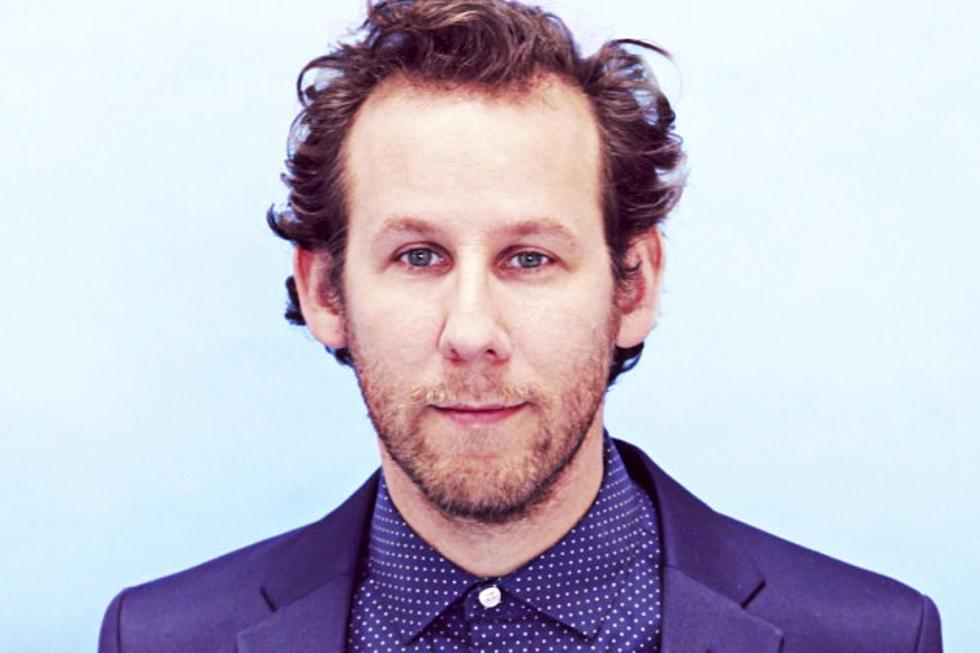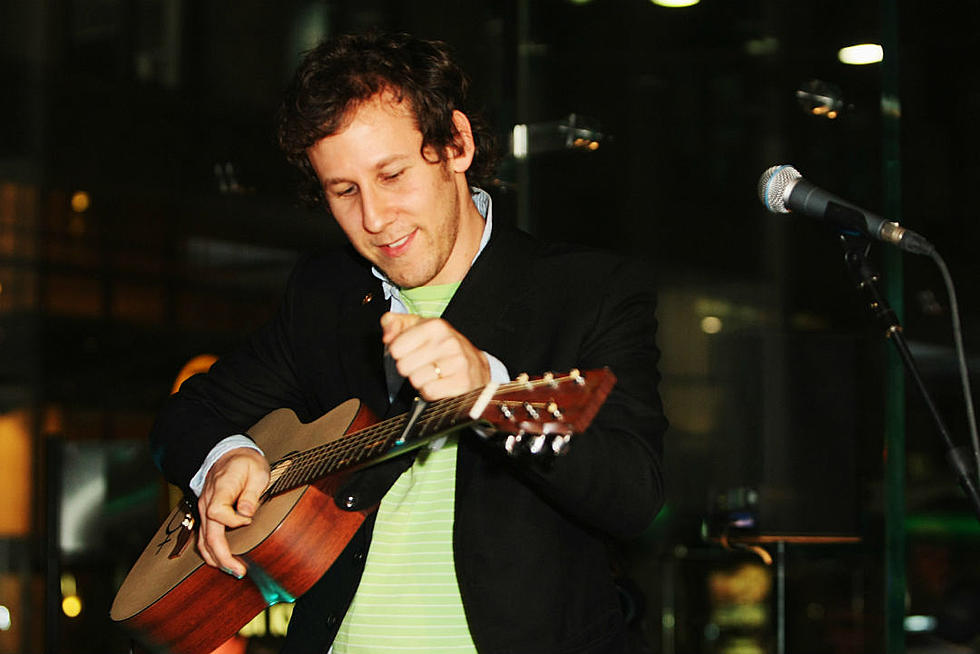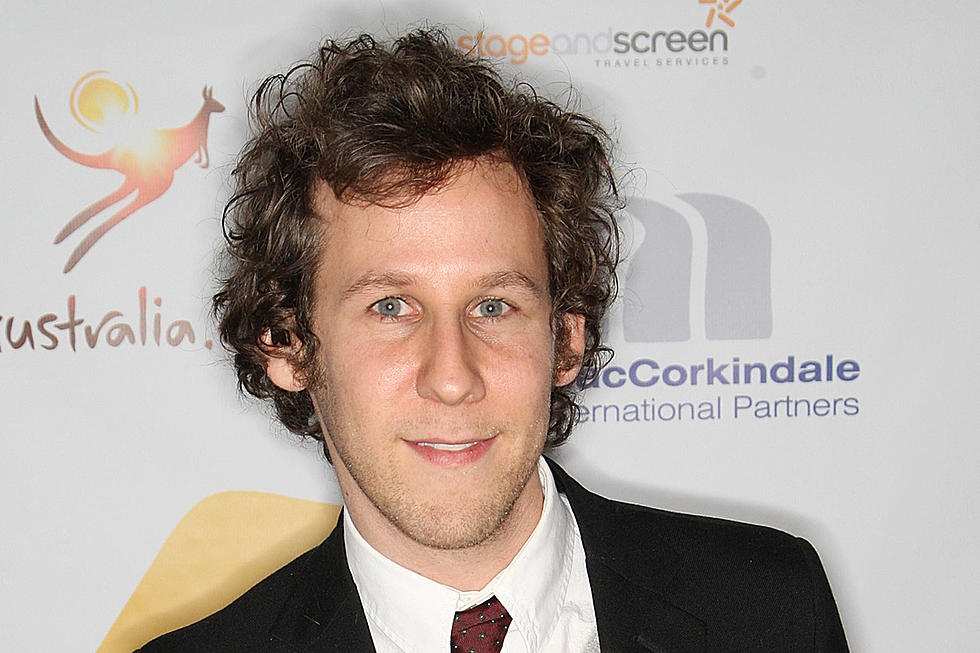
Ben Lee: ‘I Don’t Put a Lot of Energy Into Philosophizing About the State of the Industry’
At the beginning of this month, Australian singer-songwriter Ben Lee released his debut album with Warner Bros. (and his 10th studio LP since 1995's Grandpaw Would), Love Is the Great Rebellion.
As described in our review of the new record, "Love Is the Great Rebellion fosters revolution one small gesture, one small pause at a time." Lee's realistic optimism shines throughout the album as he attempts to change the world not with grandiose endeavors, but by being authentic in the relationships in his life.
Just days after the disc hit the streets, Lee took a few minutes to catch up with us about his state-of-mind now that Love Is the Great Rebellion is out, his view on the current state of the music business, why he's interested in the death process and what 2015 has in store. Check out our exclusive chat below:
Since 1995's Grandpaw Would, you've had a pretty steady output of studio albums every two years, maybe three. Where you're at now as an artist, do you enjoy this process of doing interviews and promotion, or are you already looking ahead? Are you ready to take the next step past Love Is the Great Rebellion?
I'm sort of in a place where I have more gratitude for the opportunities to promote my music than I ever had. Some of that is just having gone through the ups and down of a career and realizing that it's not every album that the phone rings on. Like now, I can see when it's meaningful when people do want to talk to you about your work and want to share it. So, I am quite grateful for it. And yes, I'm also onto the next thing. [Laughs]
Putting promo to the side, as a musician, are you the type of guy who likes to dwell and reflect on the process of making the album, or do you close that chapter as soon as it's done and mastered?
You know when you have an epiphany about something? Like, "You know what, I should be calling my mother more often." It's all very well to have that epiphany but it's the actual calling her more often that makes the difference. Albums are the same, they're creative epiphanies that you make, then in the sharing of them, it's kind of being like a man and standing behind it in action. So, while I'm channeling and exploring other things, I want to stand behind the piece of work as the real important part of integrating it into who I am.
Have you always been like that, or is that something you've learned?
No. [Laughs] I used to just wish I could record them and put them out the next day and then make another one. It comes with getting a little bit more patient as I get older and actually realizing that things need time to grow slowly and to have a real impact. It's not about racing through the process like I used to think it was.
For the new record, you again teamed up with producer Brad Wood. Is this the first time you've been with him since Awake Is the New Sleep?
No, I did [The Rebirth of Venus] with him and then we've done a lot of projects ... I produced an album for this group the Silver Lake Chorus and Brad engineered all the recording. It's a 26-person choir. We've done a bunch of collaborations over the years. We've stayed in pretty close contact.
Do you find it easier to work with a producer who you have that kind of relationship with, where you're working together on a number of projects over several years?
The one with Brad is very unique having worked together over 22 years, 23 years. So it's kind of like we're brothers and collaborators and it's very strange. We've watched our lives actually transform sort of side-by-side. I've had the whole variety of people that have been hired and other people that there really hasn't been that connection that you've hoped for. Even with Brad, it's changed depending on what and where our lives are at when we're making any particular album.
In a statement leading up to the album's release, you mentioned it's about mistakes. You also go on, though, that it's about rectification. Do you live your life with any type of regrets over things you've done over the course of your career?
Yeah, absolutely. They all stem from an era that I placed the voice of society or the family or the ego, whatever you want to call it, above the voice of my internal guidance. I truly feel like we have access to the information we need internally but because we're weak, basically, [Laughs] we succumb to peer pressure of different types. I definitely regret that. I look back at myself and think, if I would have been able to ... if I could now support myself then I would have said: Be braver. Close your eyes more. Listen to what's going on inside you more and do what it's telling you to do.
I think it's safe to say that over the course of 20-plus years, we all, not just musicians, grow and see things and learn what's right and wrong. One of the things that stood out to me when I listened to your track-by-track commentary came from the song "Everybody Dies." That area of life -- the death process -- sounds like a place where you've grown immensely. What led to that sudden interest?
I think it really stems from [Ayahuasca: Welcome to the Work] and those experiences which made me realize that really, the essence of living an effective life is in dying continually. Meaning, sort of psychologically, letting go of the past and letting go of what we saw yesterday and stepping into something new. I tend to realize that the biggest support we can give each other is just helping each other die, helping each other let go and move on. I wanted to study that more tangibly and I found the space of actually working with the dying or studying that worked as a great lens for me to look at these concepts.
What did you study about the death process?
It was both theoretical and practical, like everything from the psychological process of gaining closure and forgiveness which is a big part of how people make peace of being on their deathbed. Relaxation, acceptance, but then also the physical thing like what to do with the body. What's the value of a vigil for the family and loved ones in the days following and how death is been taught by hospitals? It's become this secret process but I really feel like it should belong to the family.
When I listened to your commentary and then the song, it definitely doesn't seem like a morbid fascination.
Yeah, death doesn't need to be morbid. I think it's more morbid the more taboo it is. When it's accepted as part of an experience, it's just like everything else. It's just one of those things, and it connects us all. We all have to face it. It's something we all have in common.
And the song itself, musically -- the arrangement isn't dark or sorrowful.
Yeah, that's a big part of what I want to impart to my kids. Just that we can live in the face of the unknown without being sorrowful.
With "Big Love," you released it as a 7" for Record Store Day, which I'm a big fan of. Is vinyl something that is still important to you personally?
We have a record player, we play records. I'm not someone who ... I don't put a lot of energy into philosophizing about the state of the industry. I'd rather put that energy into adapting and creating circumstances that are fortunate enough for me to continue my work. [Laughs] That's kind of the gist of it. I'm not a nostalgic person about the record industry and I don't think it was particularly healthier 10 years ago or 15, 20 years ago. I grew up in a time where there was a lot more money in the industry, but the music didn't seem a lot better. So I'm not sure that's really the problem that everyone thinks it is.
I appreciate that line of thinking, because I think it's very easy for a writer like me to chat with a musician about the state of the business or whatever. I appreciate that you would rather put your energy toward something more productive and positive.
I have a personal livelihood and support of my family at stake. If you spend all your energy thinking about what went wrong, and it's like ... I'd rather put that energy into trying these new mediums and seeing which ones work and which ones don't and gaining my own understanding of it.
That makes perfect sense. Speaking of your livelihood, you've seen success across the world in different countries, obviously in Australia. I saw you in the states and I know Awake Is the New Sleep, at least critically, did really well in the states. Do you find major differences in your fans when you play Australia or Europe or the U.S.?
Not at this point, except in the moment where you have a hit in a country, which I've had a couple of times. Then you get an influx of fresh blood, people that might not know much about your music particularly, they just like that song. In terms of longterm fans, I think my fans, across the board, have a certain similarity.
What's on the horizon for you this year? You've got the new album, a tour -- are you thinking about what's next as you continue celebrating Love Is the Great Rebellion?
I've got a kids project that I'm hopeful will be the next thing that I release. That's kind of exciting. In general, I'm just enjoying continuing to share my music with my audience. Whether it's doing house concerts, or all of these different mediums I'm interested in, sort of experiencing them and seeing which ones suit me. I don't know. I'm kind of -- I feel grateful that people are still enjoying my music and that it's ... I'm looking forward to continuing, basically. [Laughs]
You can pick up Ben Lee's latest LP, Love Is the Great Rebellion, here, and make sure to check out his full tour itinerary and all of his happenings at his official website.
Listen to Ben Lee's "Big Love"
More From Diffuser.fm









